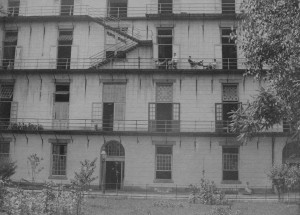I have been involved with National History Day (NHD) since 2001 as both a judge and as a librarian. Judging this competition is exciting – middle and high school students put their heart and soul into projects, some of which are of exceptional caliber. Working with NHD as a librarian can be frustrating – students seem to stick with the same 10 broad topics, all of which can be researched with little more than a few clicks on Google.
I am going to tell students a deep, dark secret held closely by NHD judges: if we, the judges, read another paper, or see another exhibition, about the atomic bomb, or about the Salem witch trials, or about Alice Paul, we might start screaming. The impact of the atomic bomb on international relations, or the impact of the trials on the development of government in New England, or Paul’s impact on women’s suffrage cannot be denied. However, I’ve read a paper each year since 2001 about the atomic bomb, regardless of the annual theme of NHD, papers with bibliographies that are created using nothing but sources that are found online.



